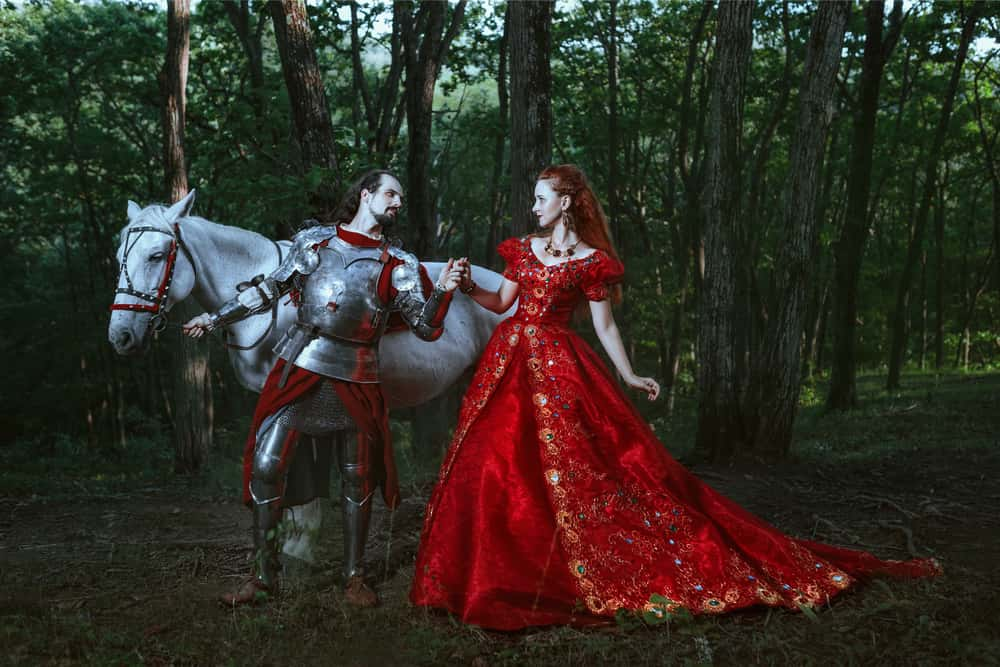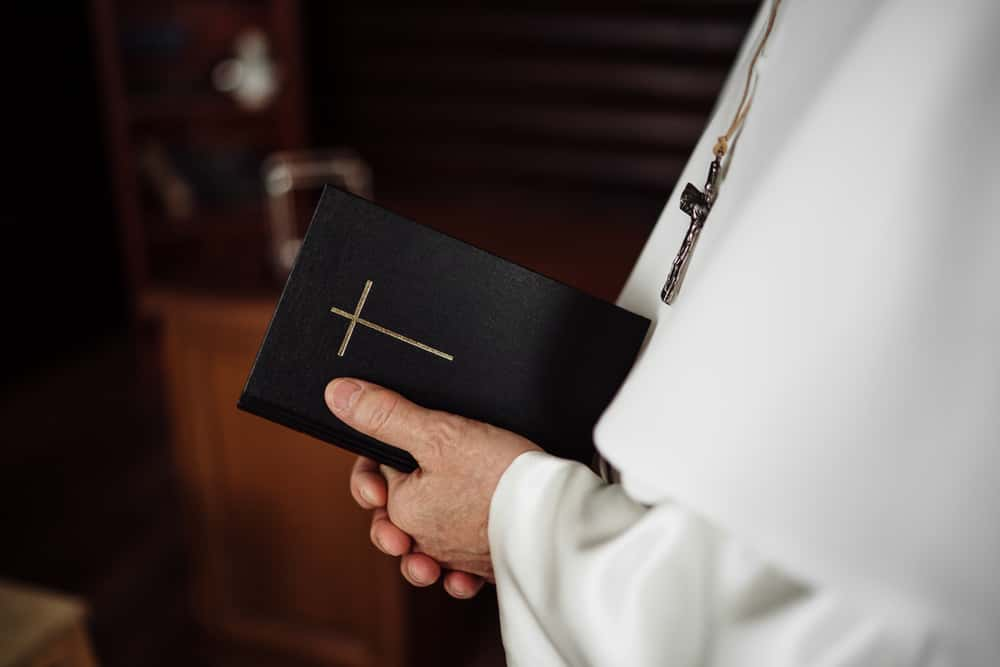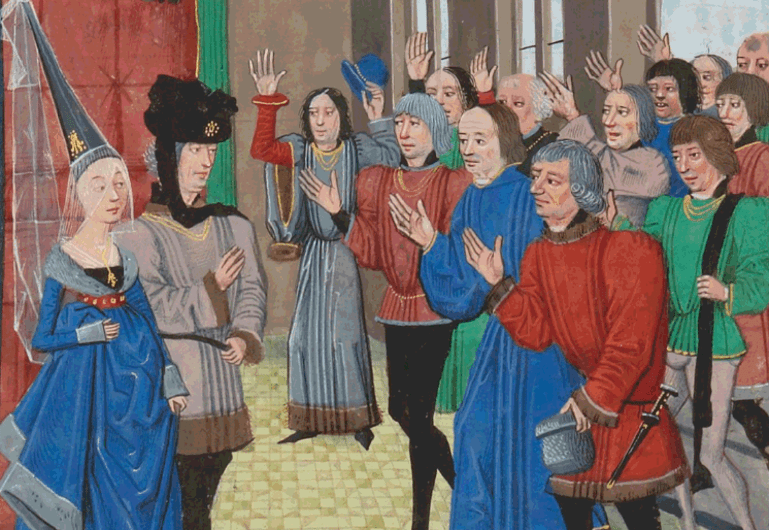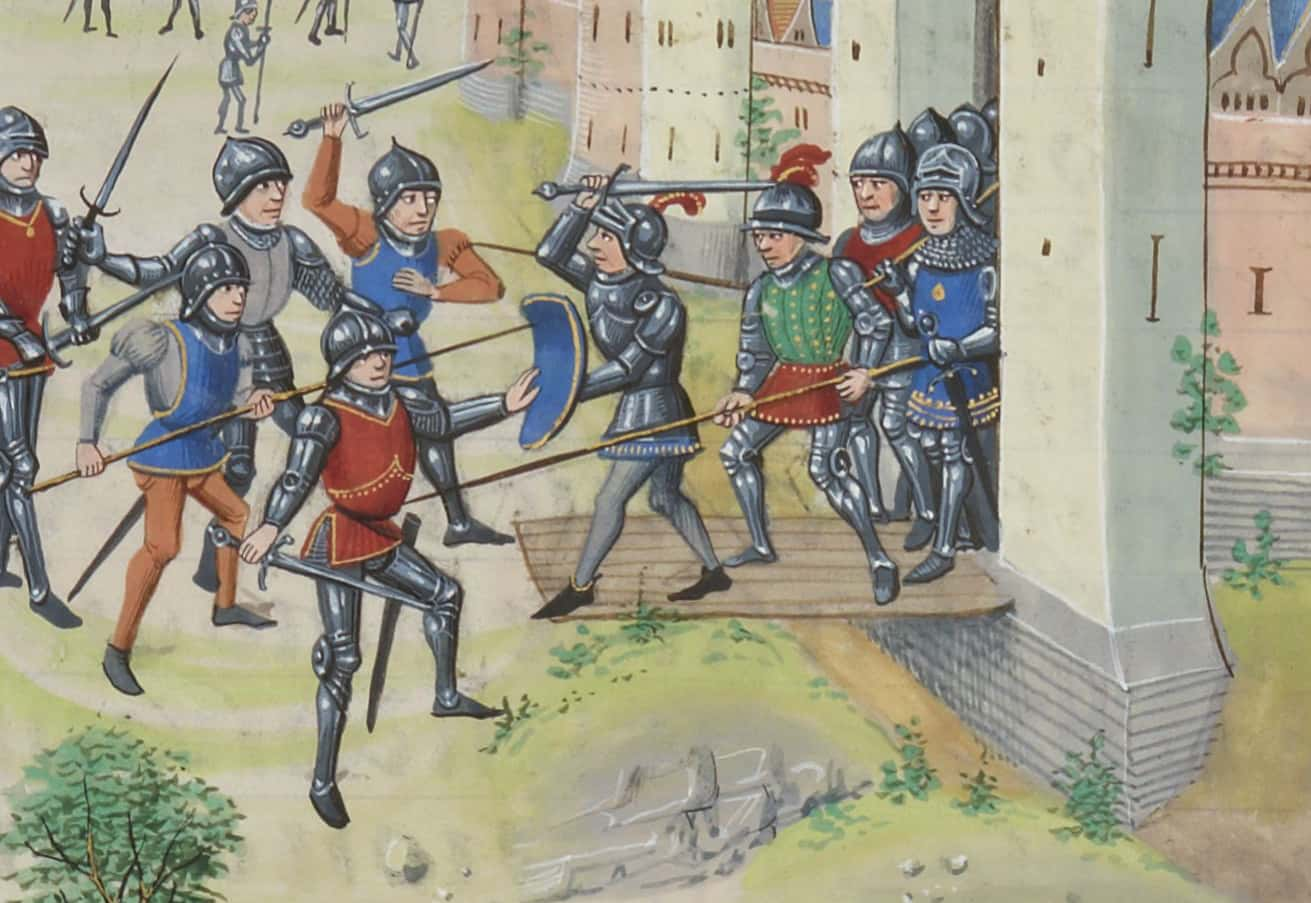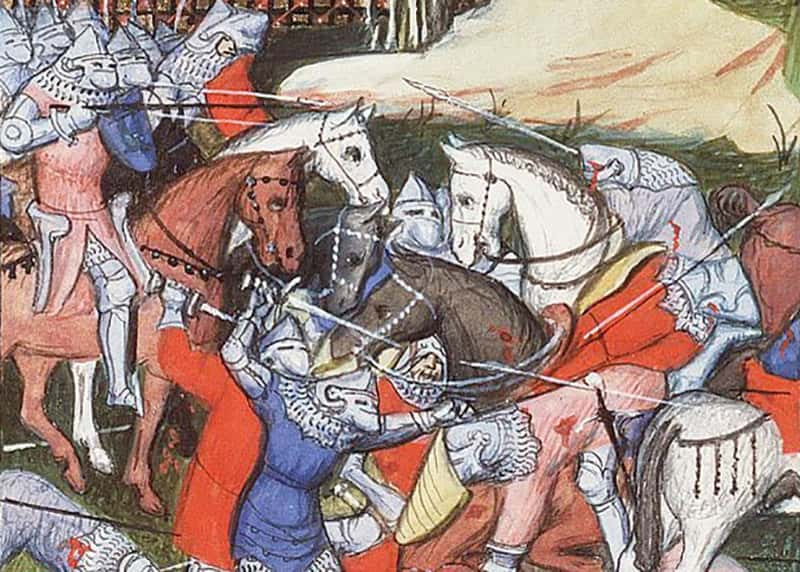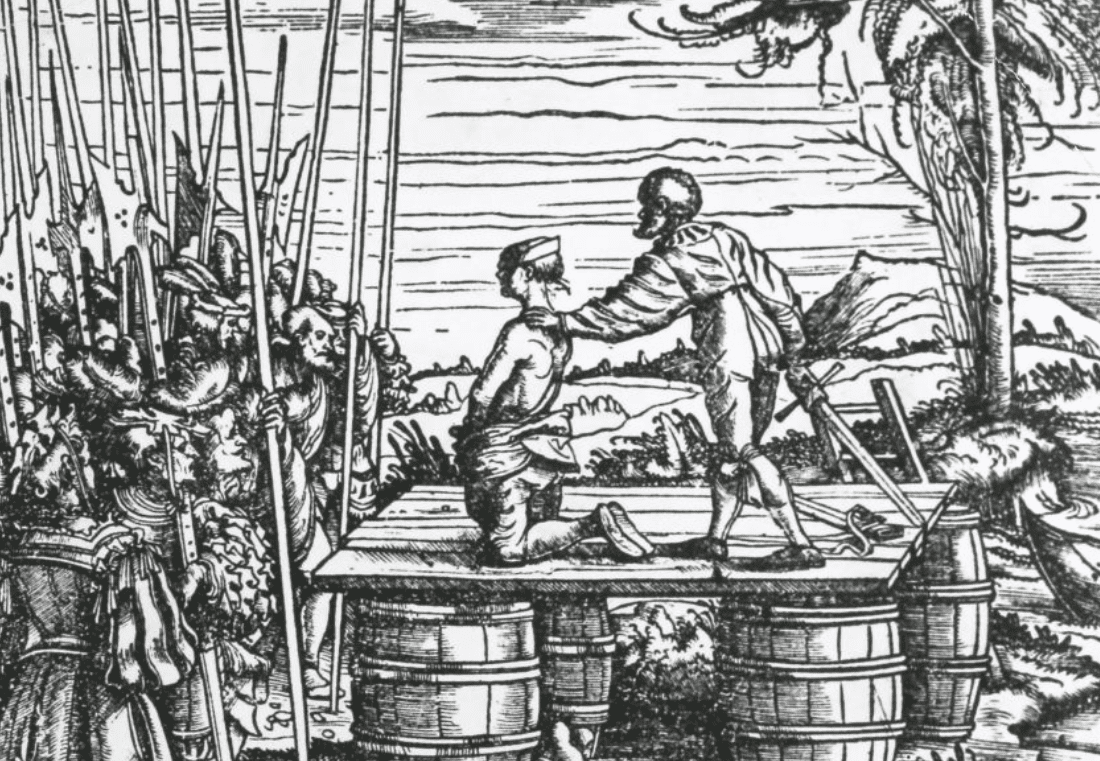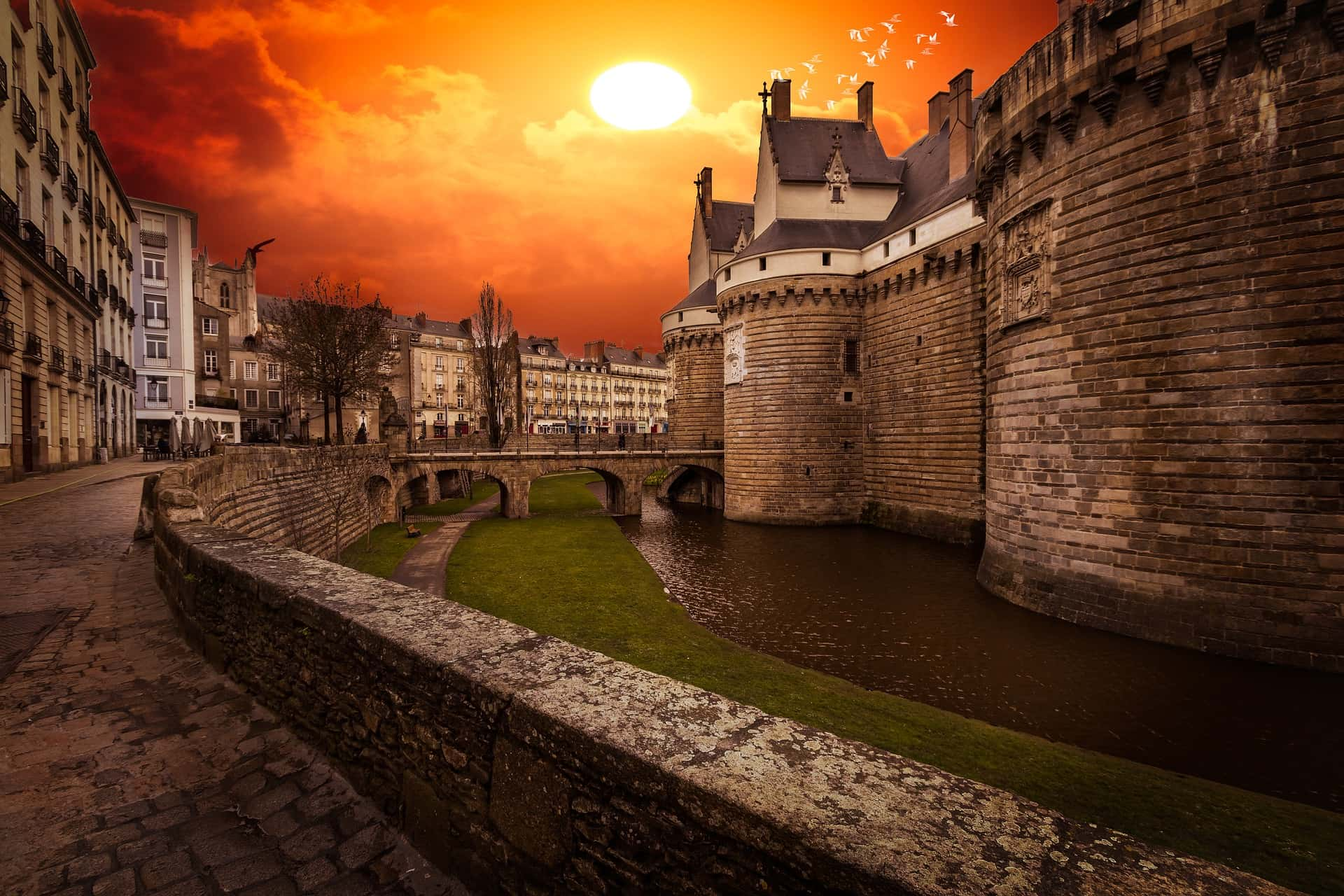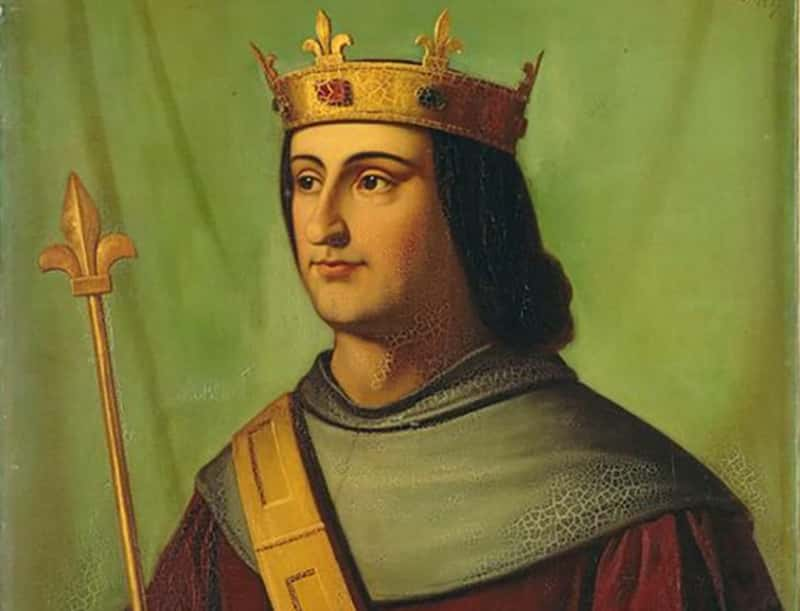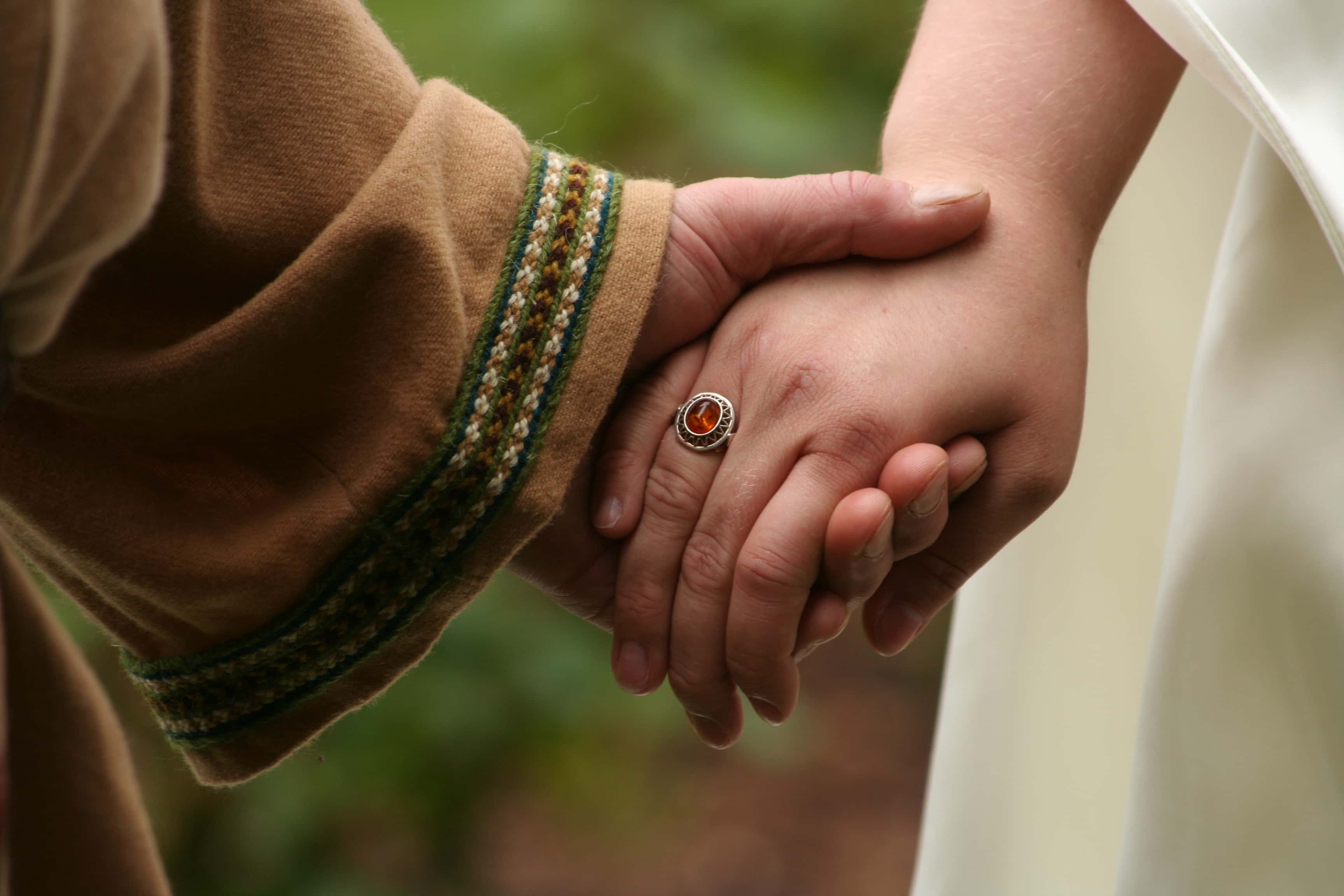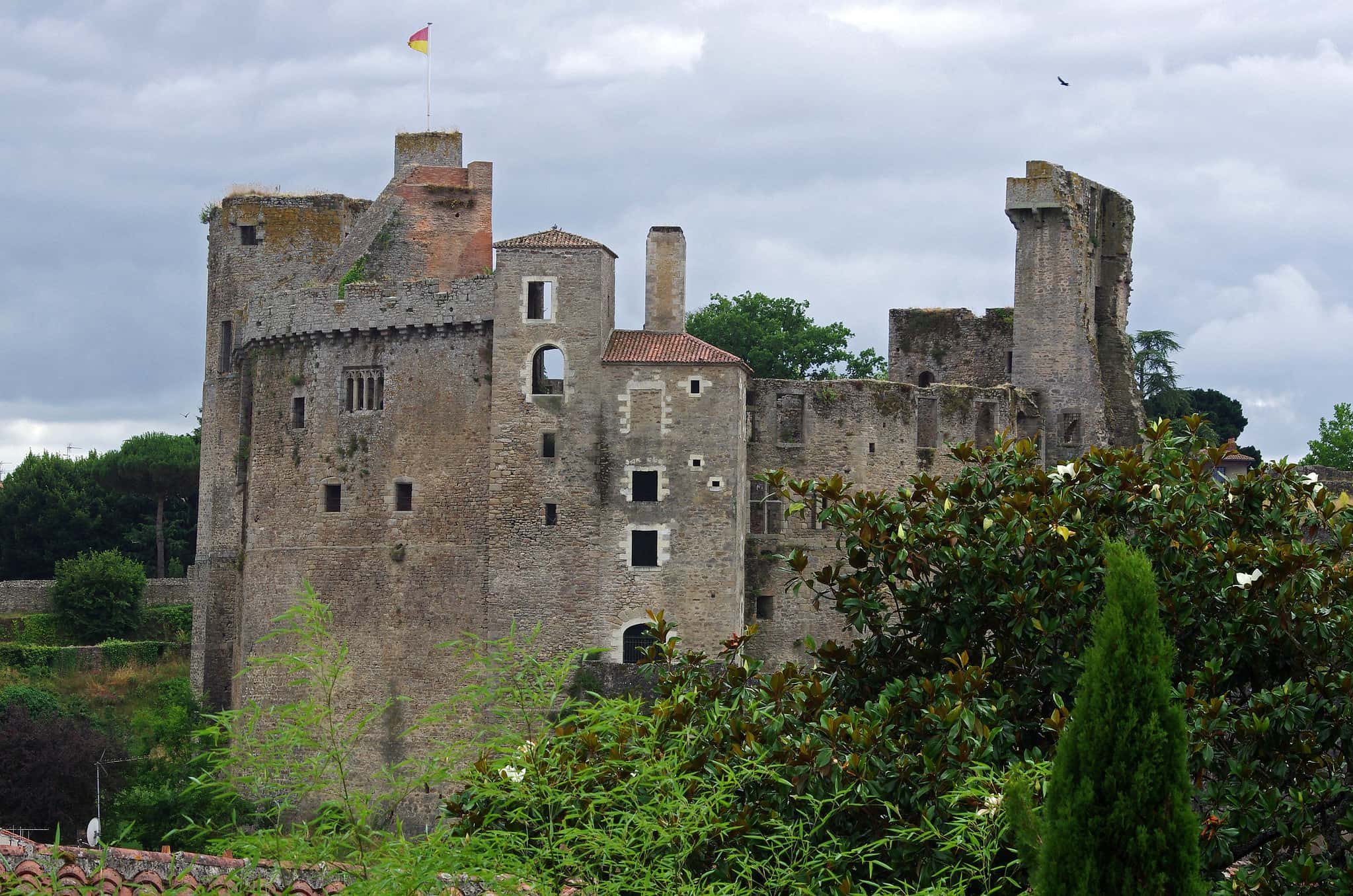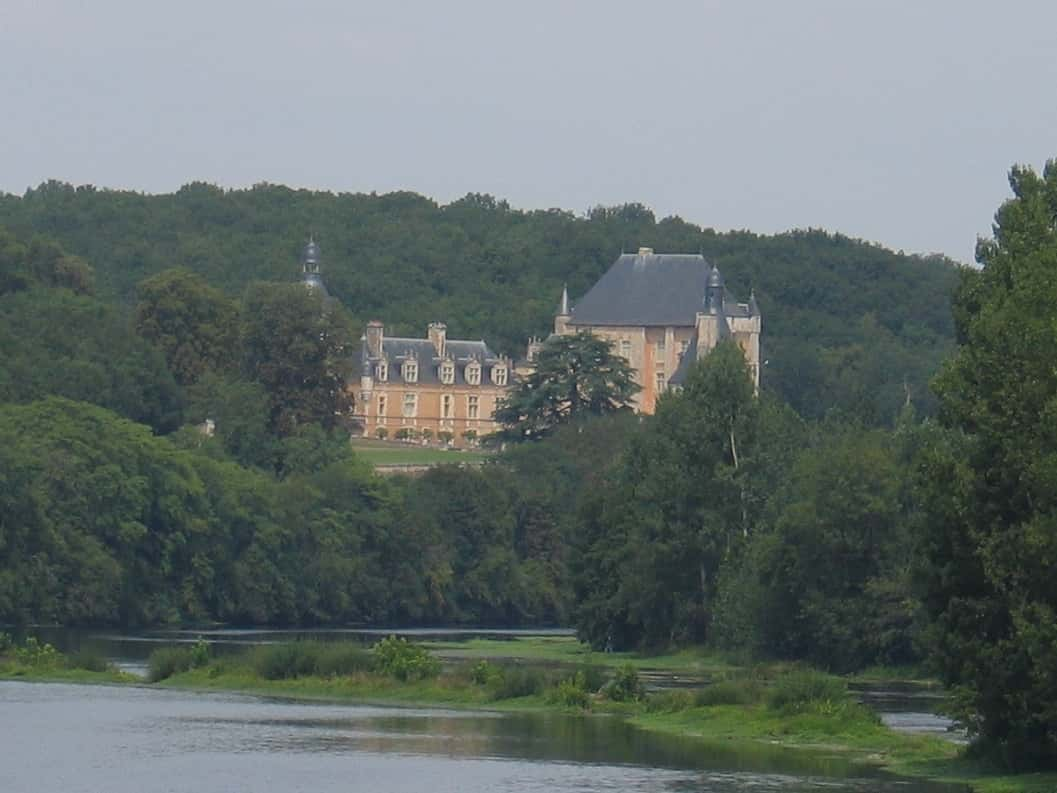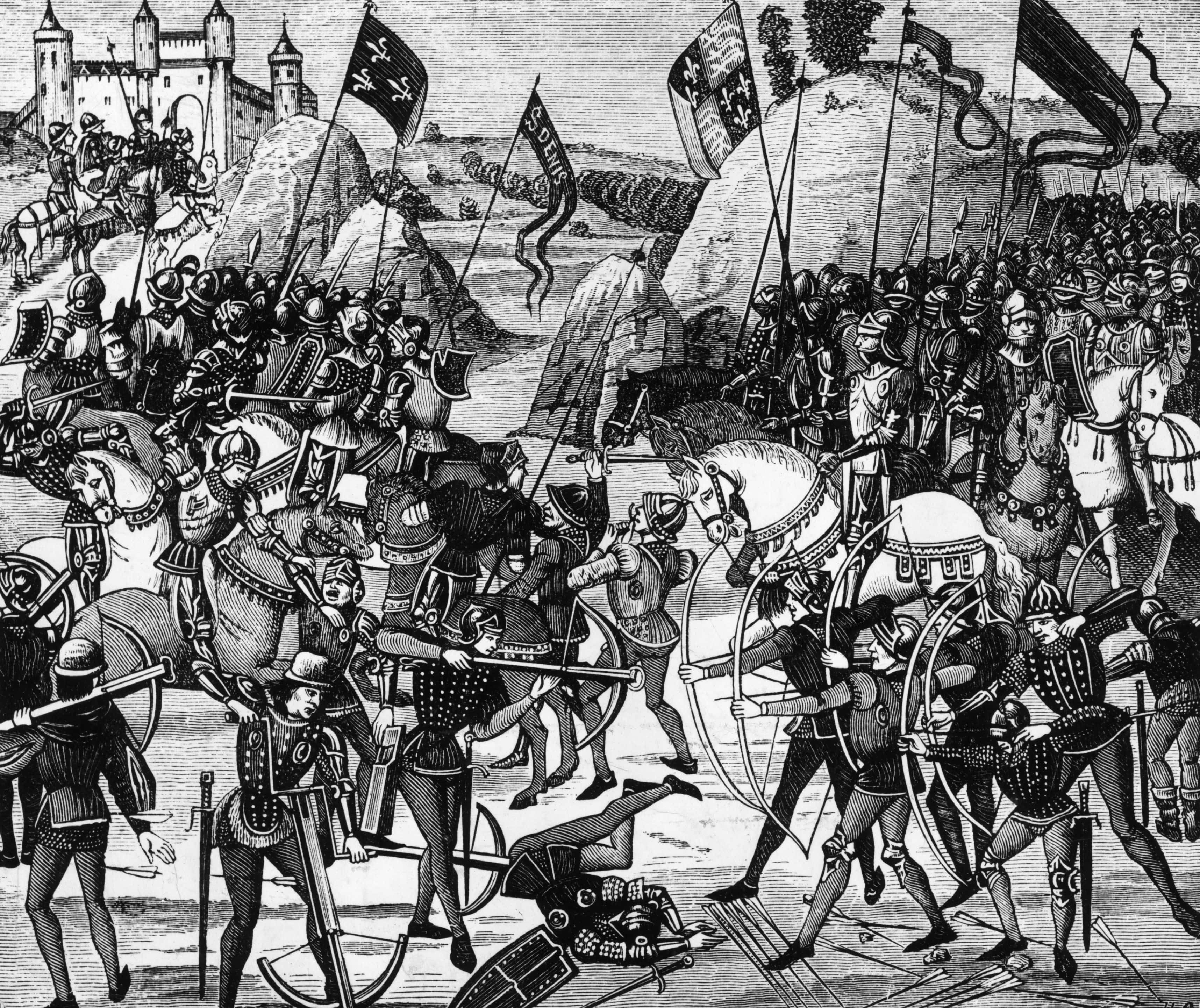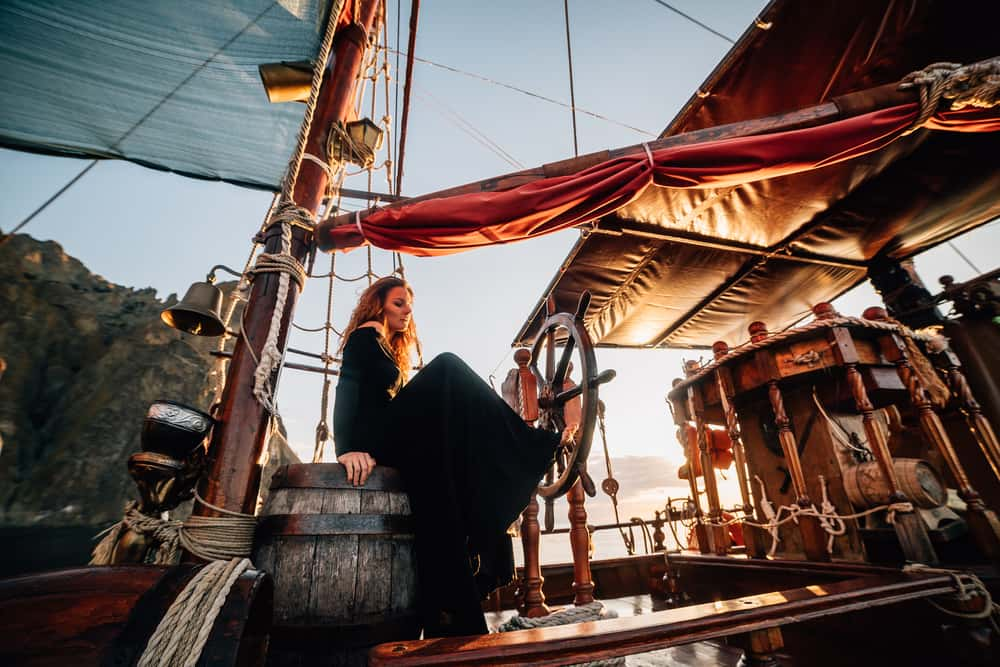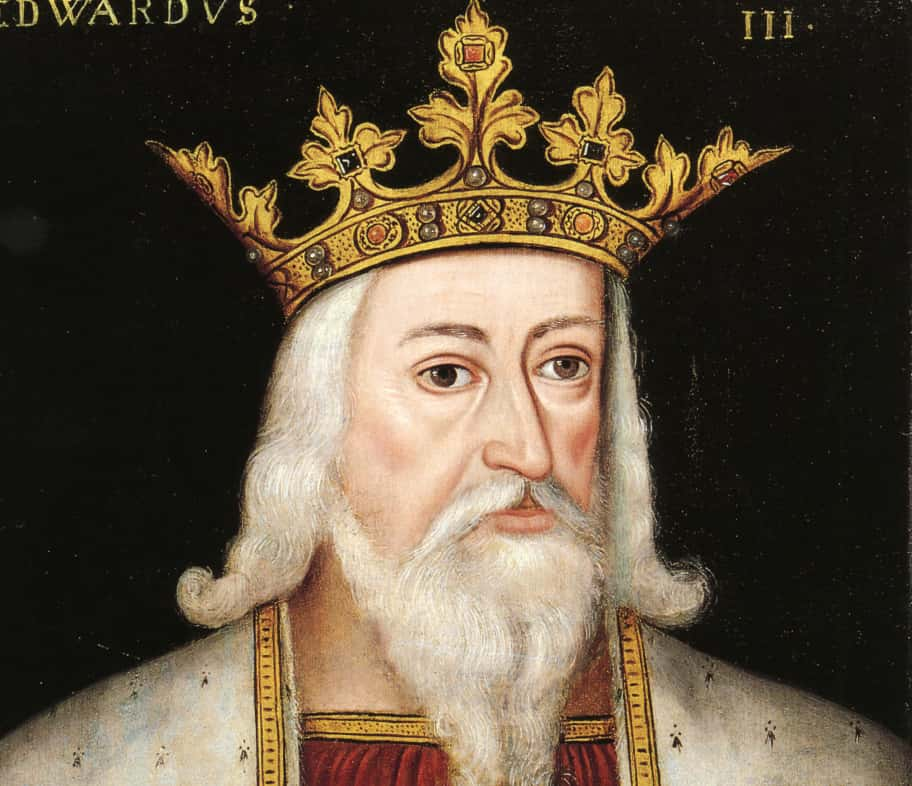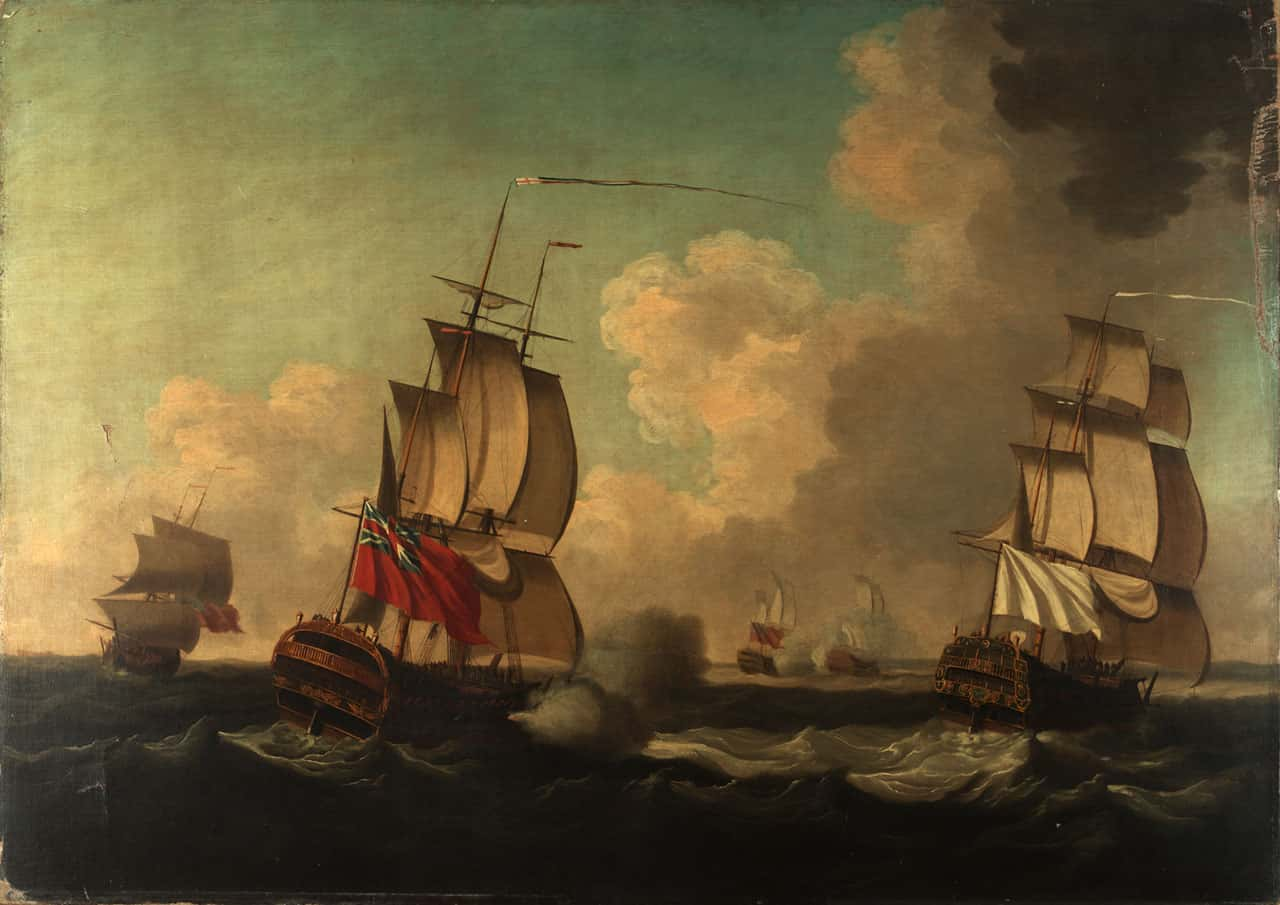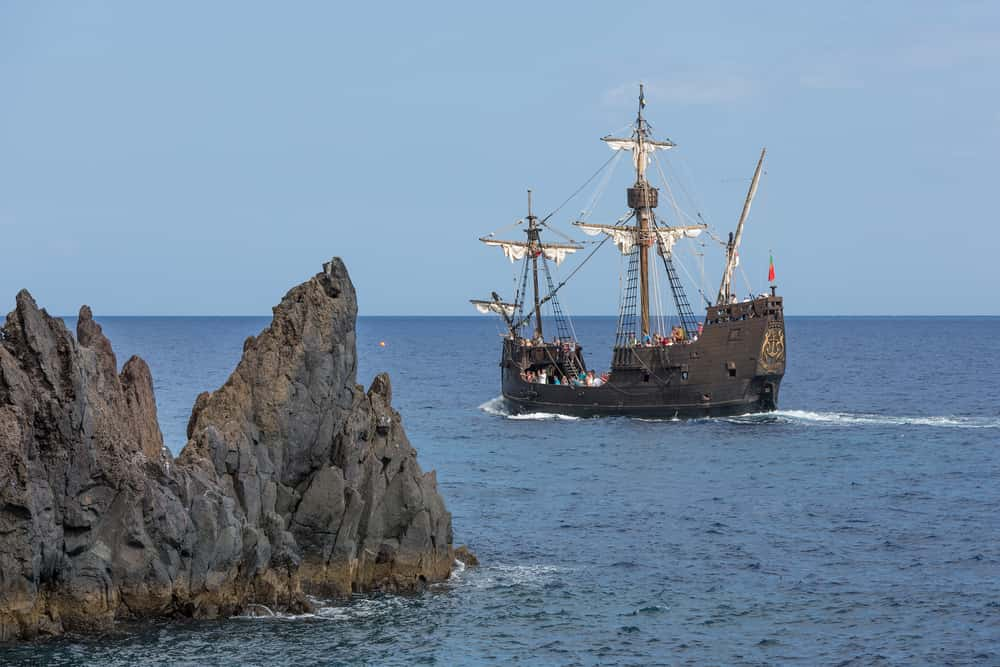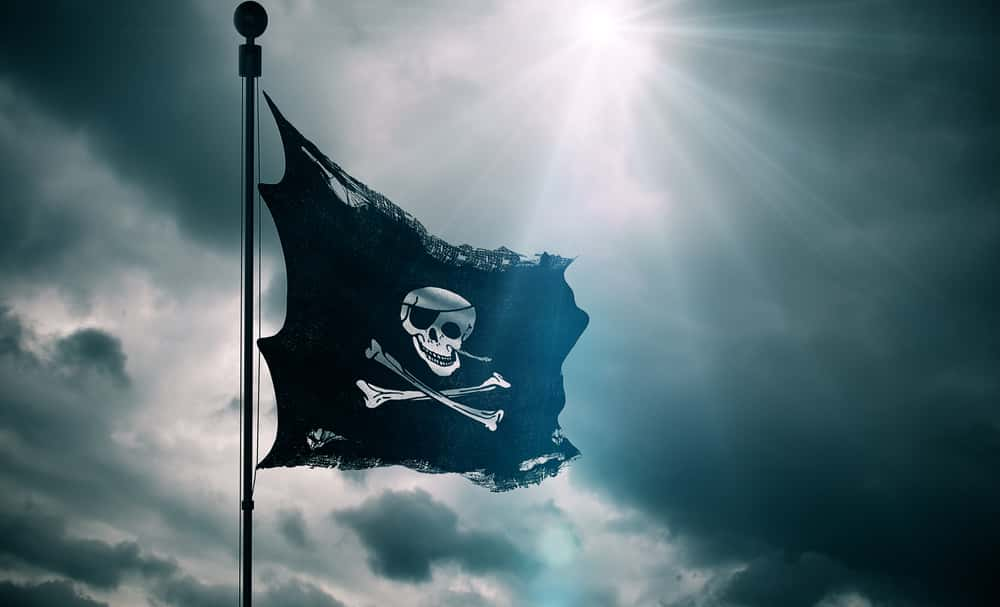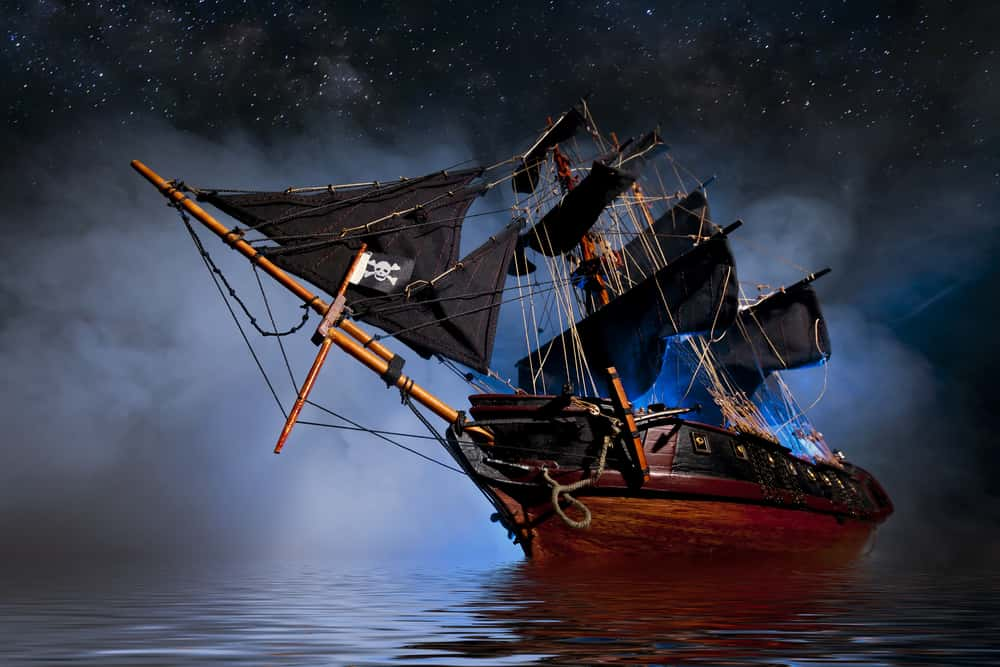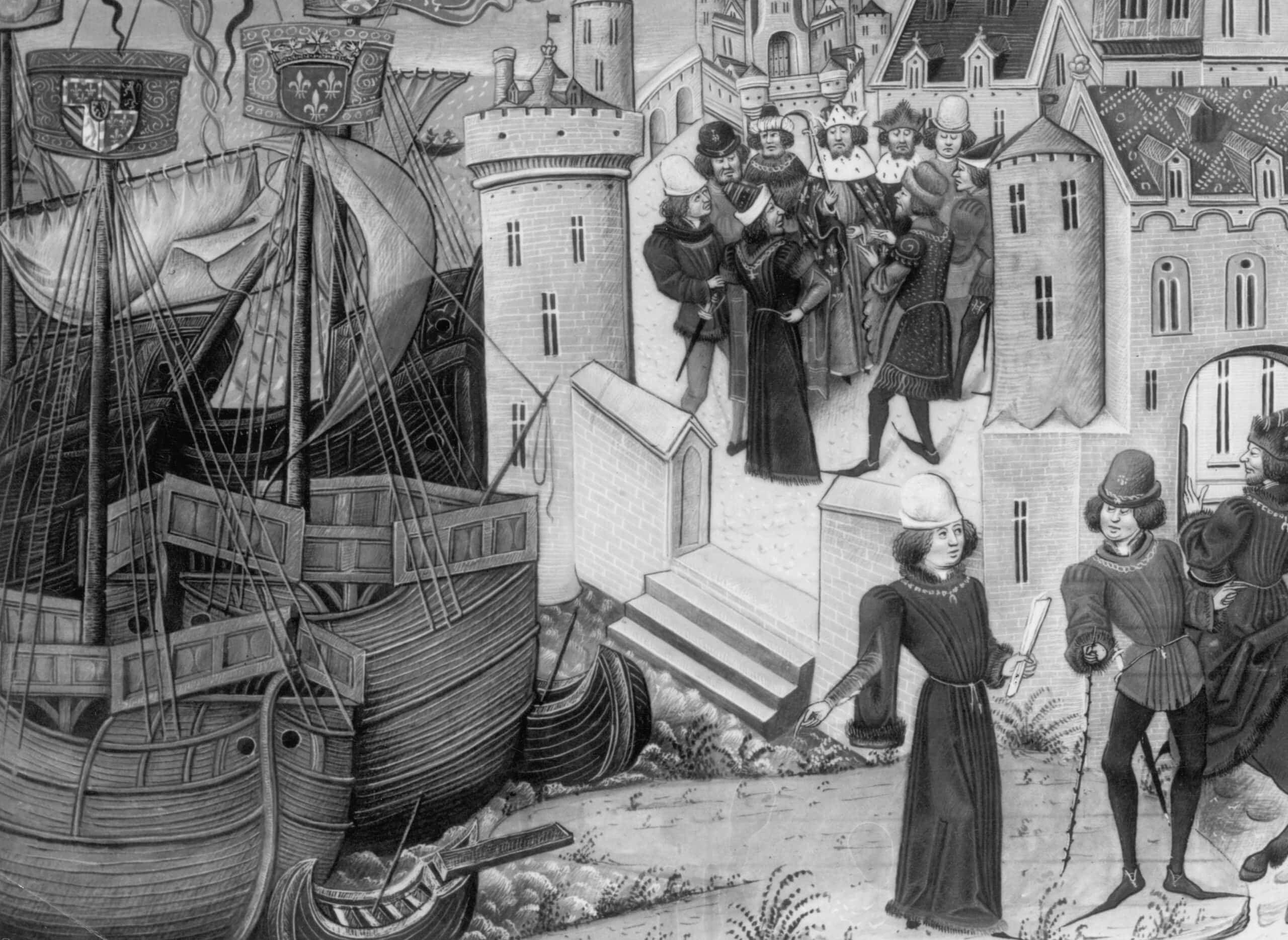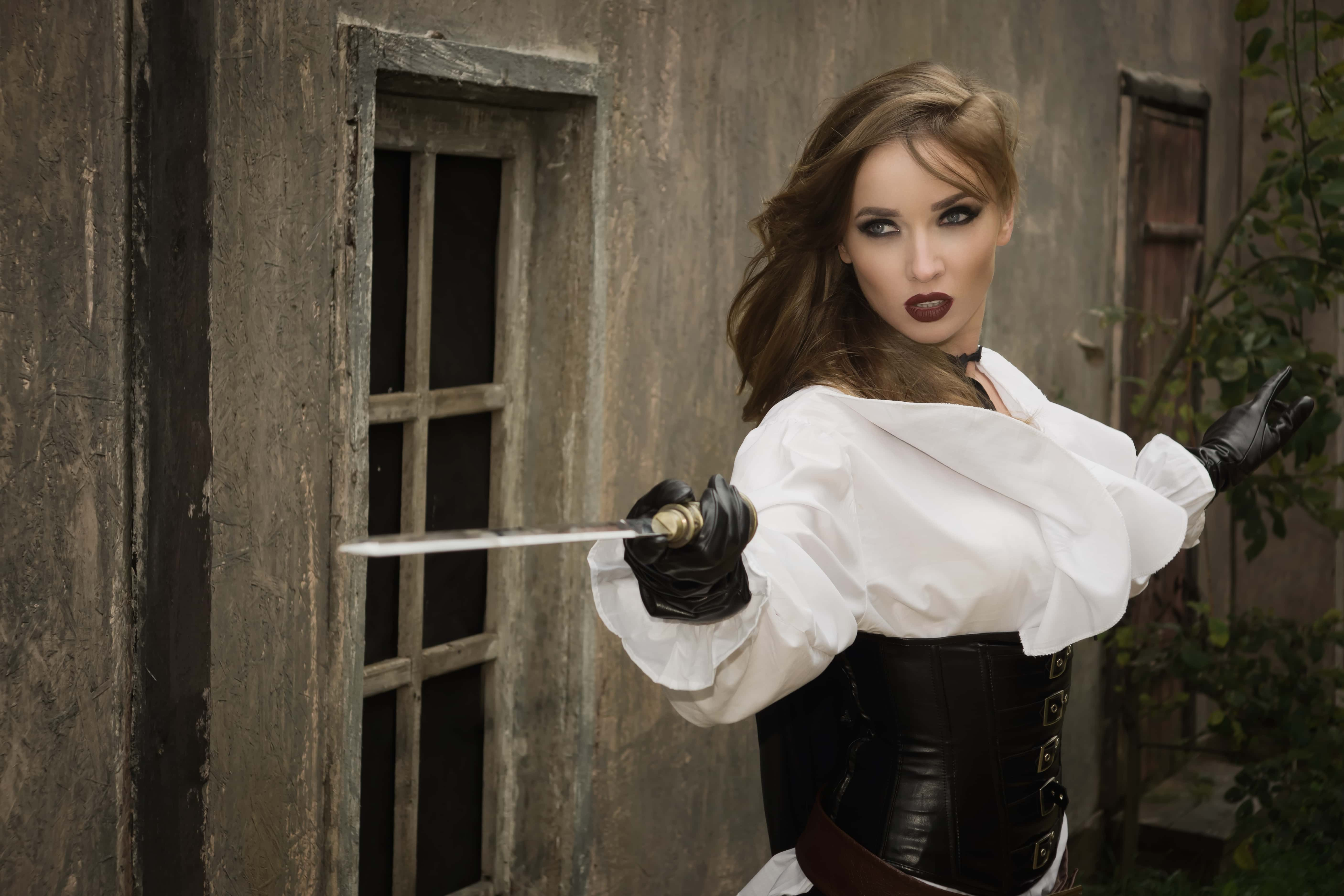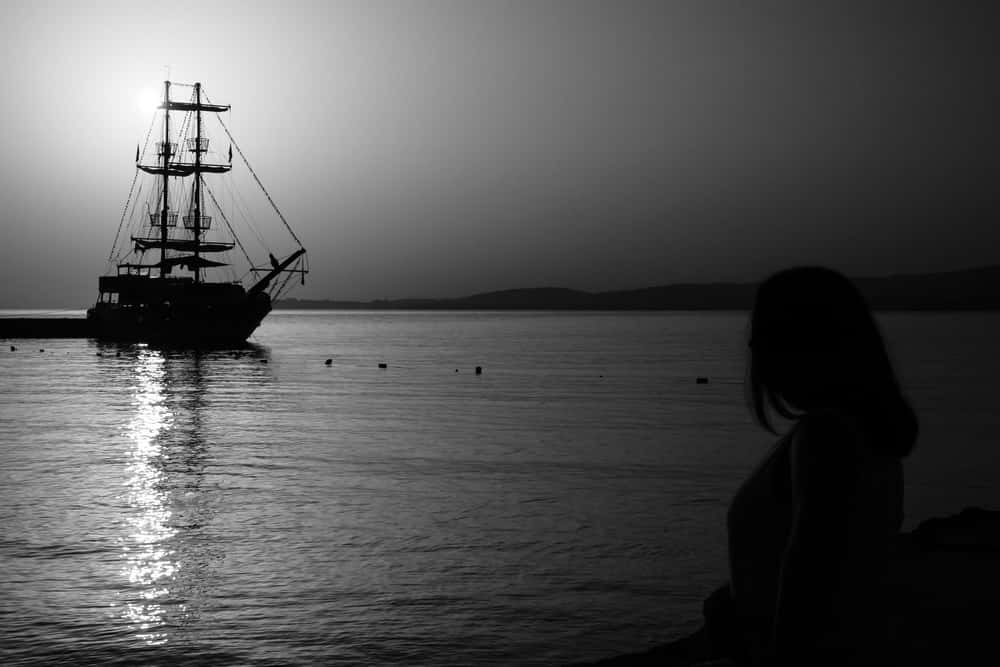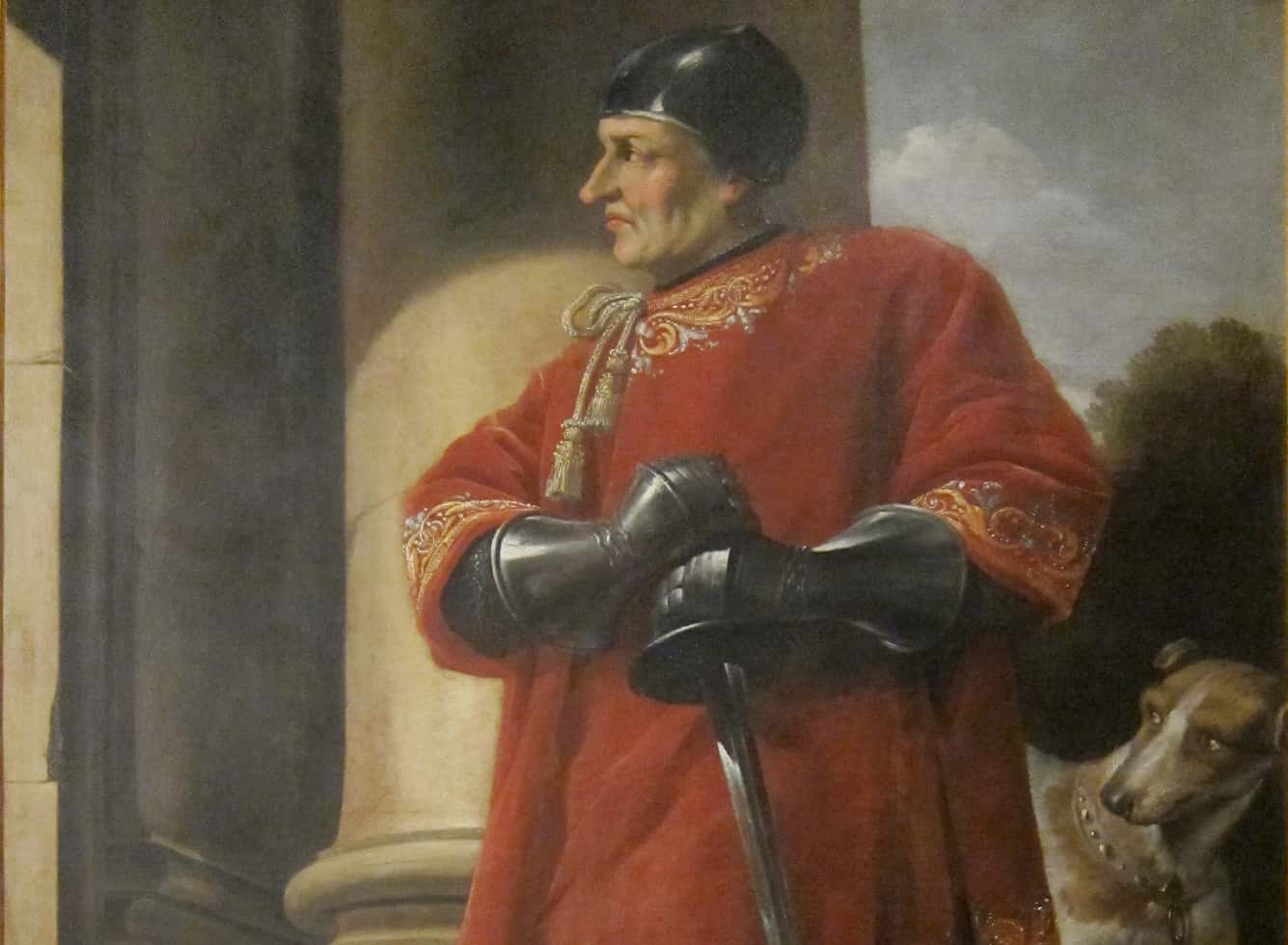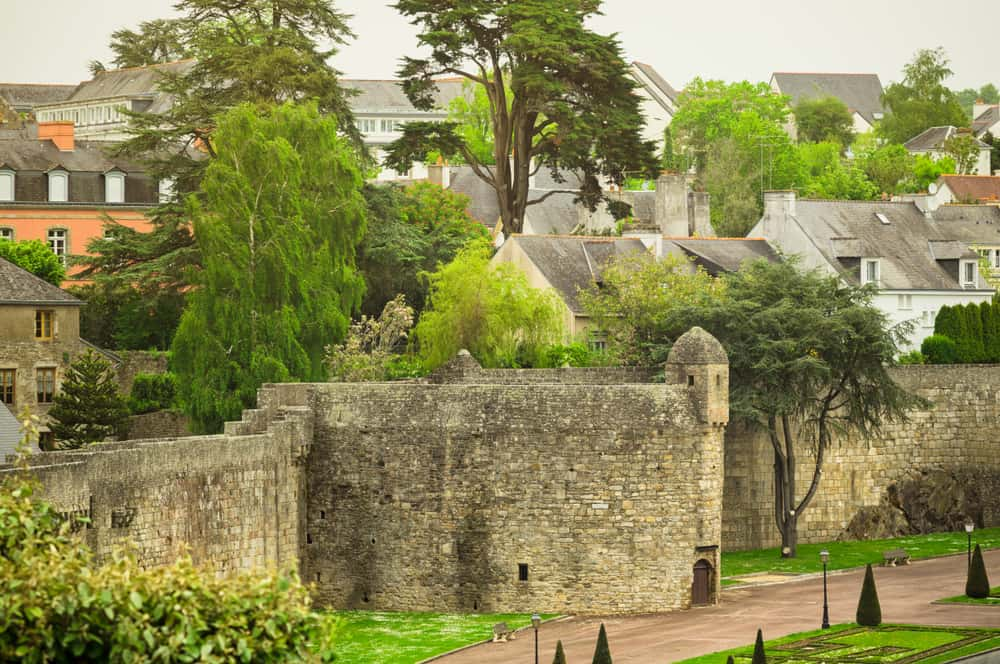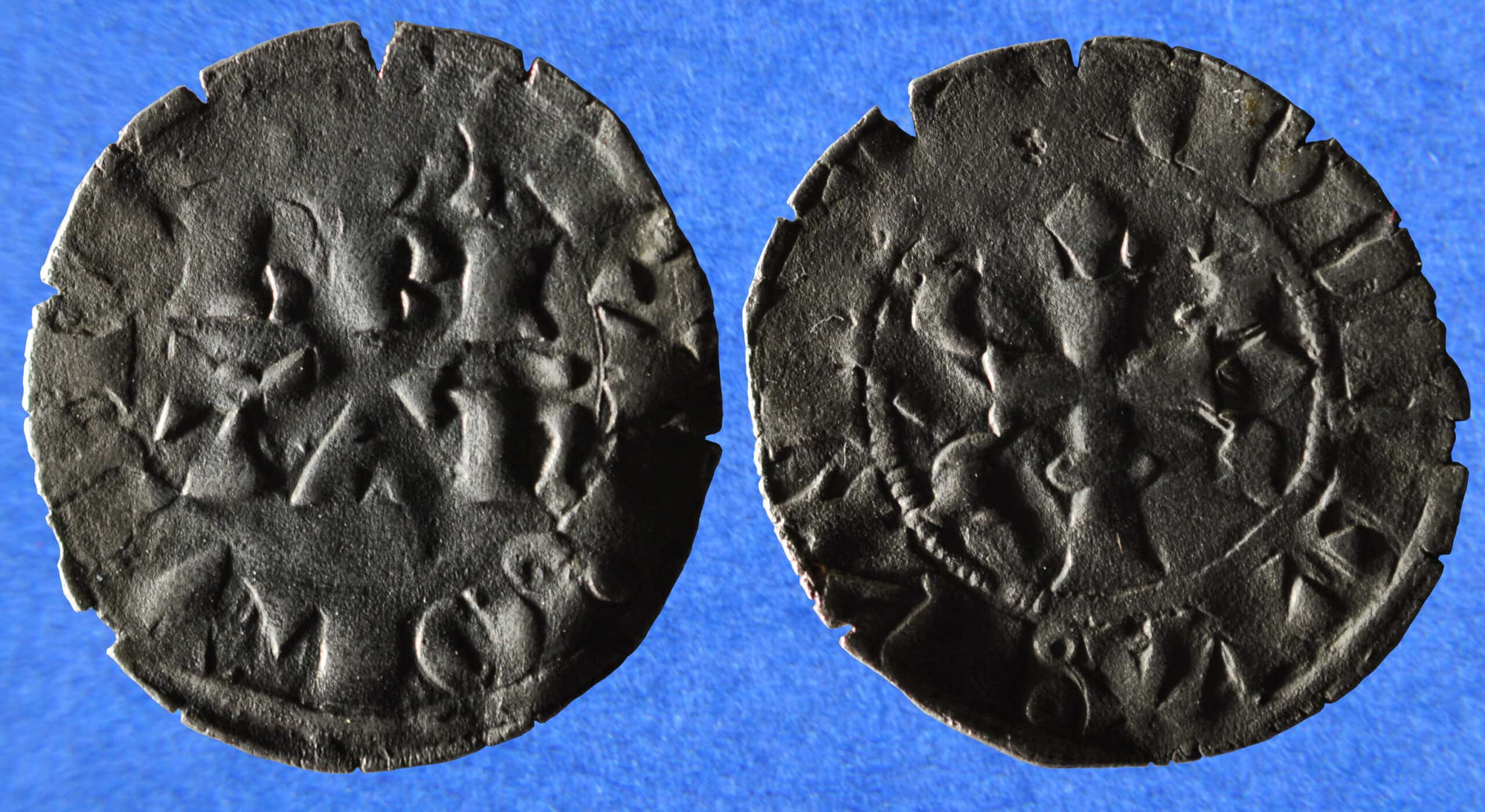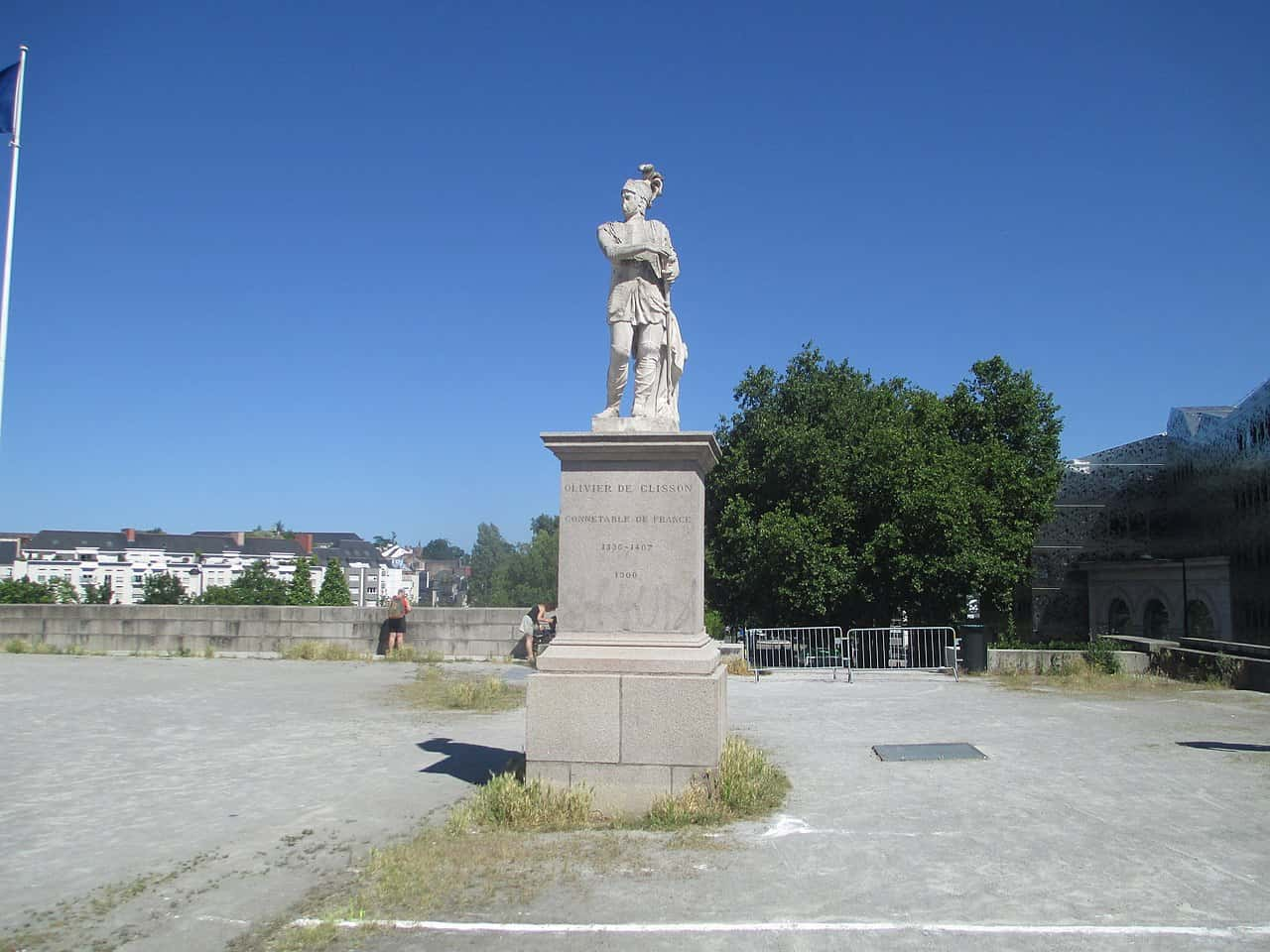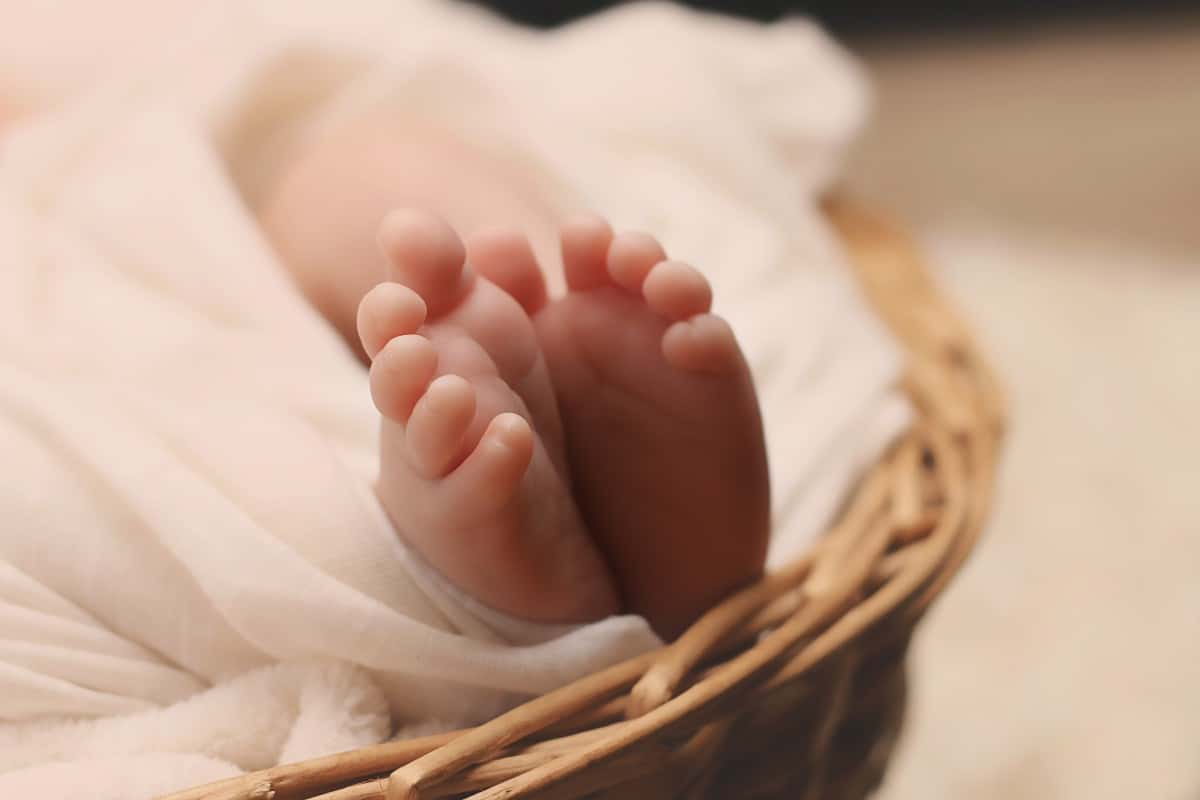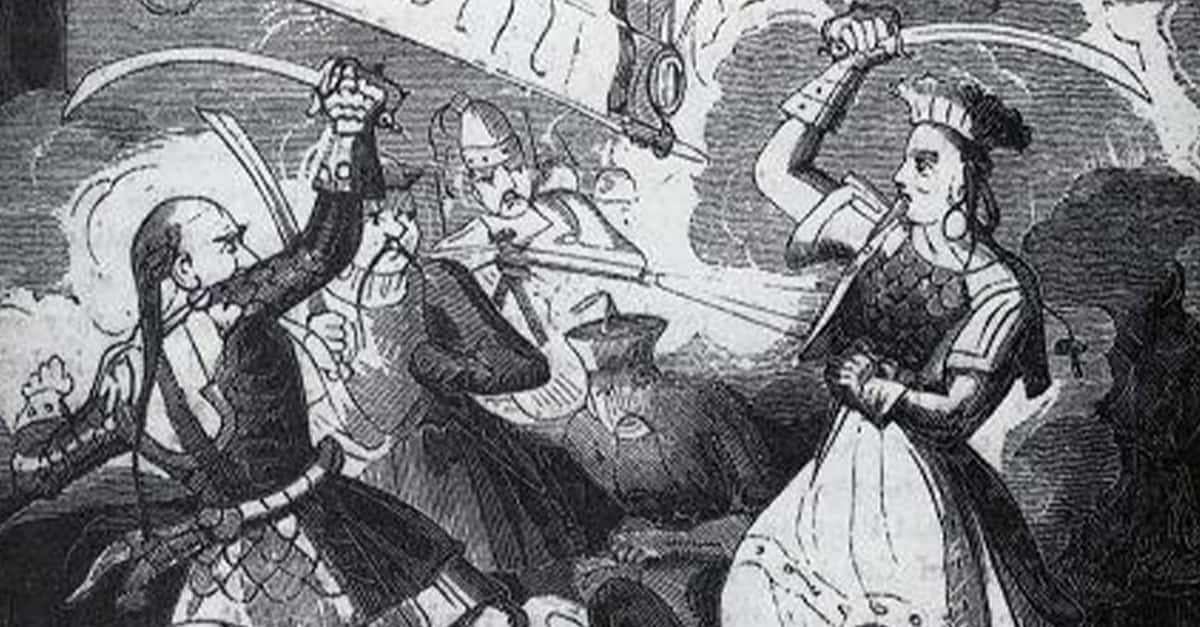Pirates are cool. Lady pirates are even cooler. Though they're much rarer than male swashbucklers, some women sailed the high seas, but no one did it with quite as much style as Jeanne de Clisson. After the French government executed her husband, Clisson swore to avenge him. She sold off her husband’s lands, raised an army, and then pillaged French ships—but her entire story is even wilder.
1. She Earned a Bloody Nickname
Every great warrior needs an intimidating nickname, and Jeanne de Clisson's moniker is mighty indeed. Over the years, people began to call her “The Lioness of Brittany” because of her vicious methods. As her nickname suggests, De Clisson loved to raid villages or towns and slaughter their populations, leaving only a few survivors to spread the word that her wrath was not to be trifled with.
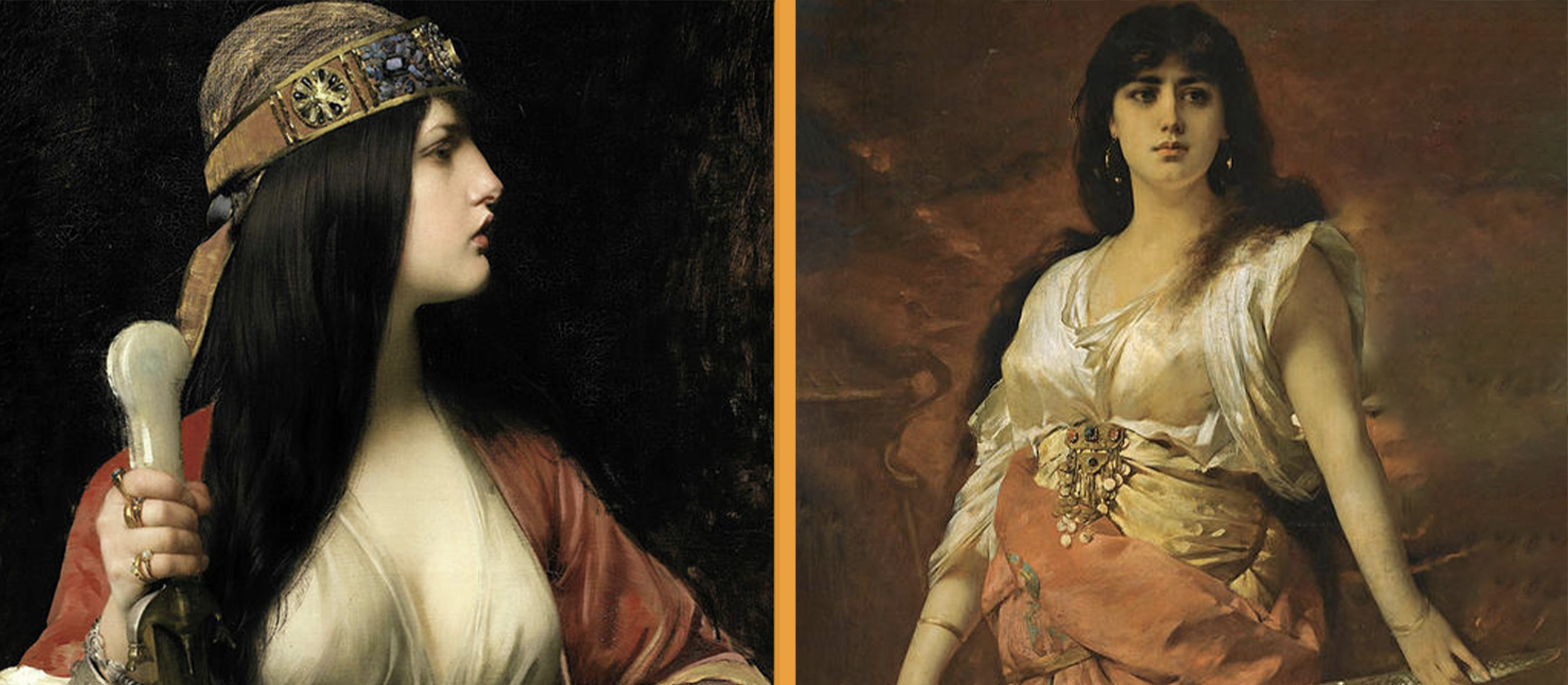
2. She Had Surprising Roots
If you thought that Elizabeth Swann’s arc from noblewoman to seafarer in the Pirates of the Caribbean movies was too unbelievable, guess again. De Clisson was also born into an aristocratic family. Her parents, Maurice Montaigu and Letice de Parthenay, welcomed their daughter in 1300 in what is now the French province of Brittany. Little did they know, they had a tiny pirate on their hands.
 Pirates of the Caribbean: At World
Pirates of the Caribbean: At World
3. Her First Marriage was Twisted
Back in the 14th century, the average person had a very short lifespan, which meant that people started adulting at an appallingly young age. Even considering this, though, de Clisson's first marriage was still controversial. In 1312, she walked down the aisle with Geoffrey de Châteaubriant VIII, a 19-year old nobleman in Brittany. At the time, she was just 12 years old.
4. She Did What She Had to Do
During their time together, de Clisson and her hubby de Châteaubriant had two children, with Jeanne giving birth to a son at 14 and a daughter when she was just 16. But in 1326, after over a decade of marriage, de Clisson got her first taste of tragedy. Her husband died, leaving 26-year-old de Clisson as a widow in the cruel world of 14th-century Europe. If she wanted to survive, she'd have to act fast.
5. She was a Fierce Mother
Now that de Clisson was single and ready to mingle (read: desperately in need of a guardian and cash), she made another quick trip down the aisle. She remarried Guy de Penthièvre less than two years after her first husband kicked the bucket. While historians don't know much about this marriage, we can infer that it was not a happy union. De Clisson sacrificed her happiness to support her young children and unfortunately, that gamble didn't pay off.
6. Her Second Marriage was a Disaster
De Clisson's second marriage didn't work out, and that's putting it lightly. It turns out that Guy de Penthièvre wasn't as available as he let on. The local de Blois family wanted Penthièvre to marry their daughter Marie, and they would do anything to make it happen. After pulling some strings with the Pope in 1330, de Clisson's second marriage was suddenly and scandalously annulled. Just like that, she was back on the market. On this go-round, she'd finally find the right guy.
7. You Shouldn't Cross Her
At this part in her life, de Clisson hadn't turned into an avenging angel just yet, but already, people who betrayed her seemed to suffer unpleasant fates. Case in point? The Blois family, who took de Clisson's man. After all the de Blois' family's machinations, they succeeded in getting Guy de Penthièvre to agree to marry their daughter Marie. But before the new couple could walk down the aisle, de Penthièvre mysteriously passed on. Lesson learned: Don't mess with Jeanne.
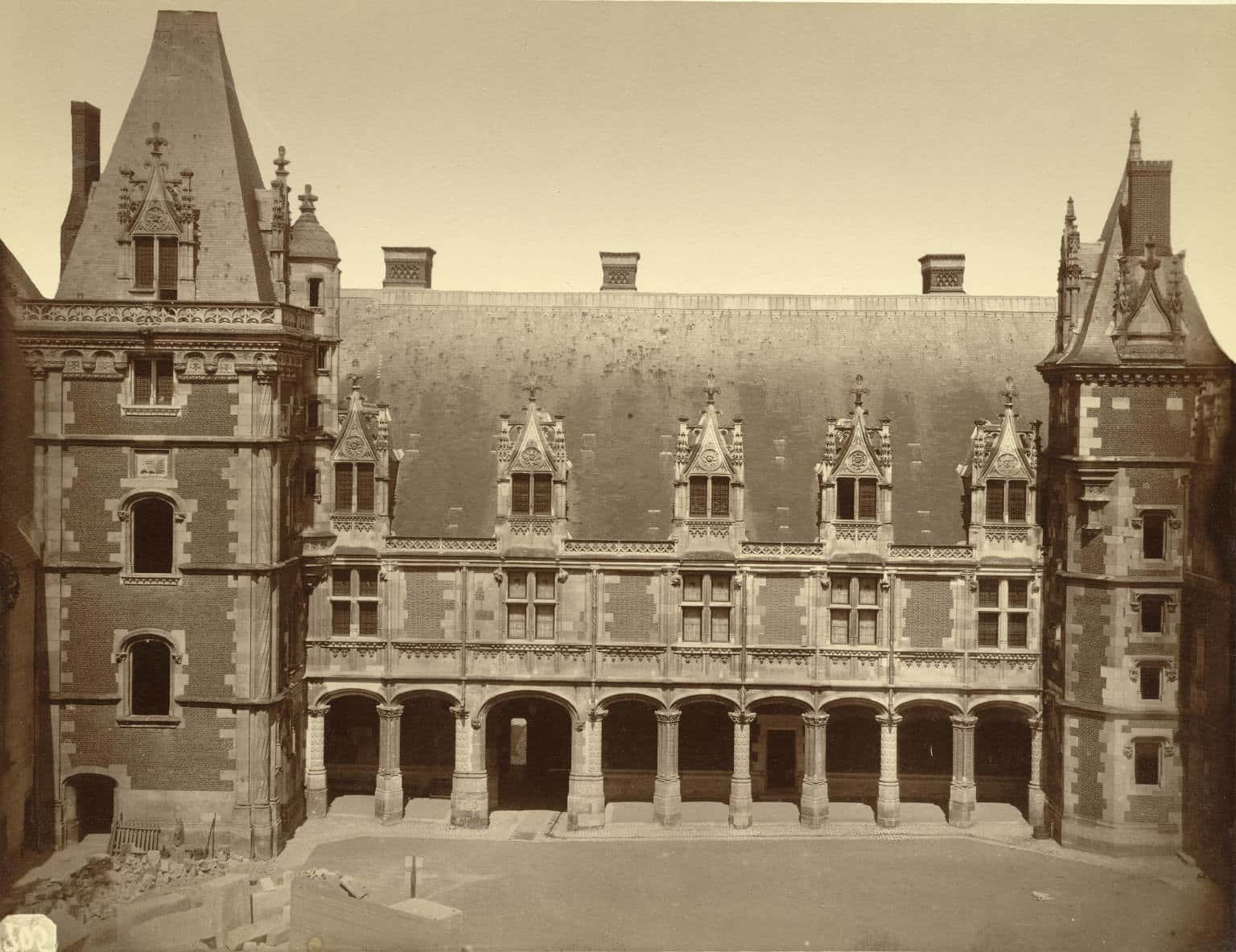 Flickr, Cornell University Library
Flickr, Cornell University Library
8. She was a Maneater
Jeanne de Clisson was the hot girl on the Middle Ages dating market. After her second marriage got cancelled, she found herself a new man that very same year. De Clisson tied the knot with Olivier de Clisson, the man who would give her the surname by which she is known to this day. Over the course of their 13-year marriage, the couple would have five kids. It was, by all accounts, a successful marriage...at least, it was while it lasted.
9. She Joined the Fight
In modern times, the idea of spending time in the French area of Brittany sounds like a dream vacation. But back in Jeanne de Clisson’s life, not so much. During the Middle Ages, France and England were constantly fighting each other over territories like Brittany. Their endless battles lasted so long that they became known as the brutal "Hundred Years War." As we’ll see, de Clisson did not back down from the fight.
10. The Fight Came to Her
As though all the messiness of the Hundred Years War wasn't enough drama, Jeanne de Clisson's family went and got involved in a little battle of their own. In her hometown of Brittany, two guys started fighting over who was the head honcho of the region. Surprise, surprise, it didn't take long for France and England to co-opt this land dispute for their own ends. The French backed one claimant, Charles de Blois, while the English supported John of Montfort. The de Clisson clan got involved in the dispute, with utterly horrific consequences.
11. She Chose her Side
Charles de Blois' fight against John of Montfort was the talk of the town in 14th-century Brittany and, as always, Jeanne de Clisson dove right into the action. Her family sided with Charles de Blois and his cause, even though it meant causing some major family drama. Clisson’s brother-in-law championed Montfort instead. Those family dinners must have been awkward, but things were about to get much worse.
12. She Suffered a Massive Defeat
Tensions came to fever pitch at the vicious Battle of La Roche-Derrien. Charles de Blois assembled an enormous army of 5,000 troopers and laid siege to the town of La Roche-Derrien, hoping to draw out the small English army left behind in Brittany while the main English forces were occupied elsewhere in France. With his huge army, de Blois thought he couldn't lose--but he was wrong. Not only did the English army defeat his men, they captured de Blois himself. It was a massive defeat for de Clisson's chosen side, but the worst was yet to come.
13. She Endured a Brutal Loss
Jeanne was a woman of action, not just talk. If she was supporting de Blois' side, you can bet she'd do more than send her good wishes. And so, at the Battle of La Roche-Derrien, de Clisson’s eldest son, Baron Geoffrey de Châteaubriant IX bravely joined the fray and fought for his family's cause. The de Clissons were confident that he'd be fine, but after de Blois' shocking defeat, they learned the horrible truth: Geoffrey lost his life in the battle. It was the first of many losses that would turn Jeanne into the Middle Ages version of Uma Thurman from Kill Bill.
14. Her Husband was Captured
Little Geoffrey wasn't the only de Clisson to join the fight. Jeanne's beloved third husband Olivier also joined the battle by defending the Breton town of Vannes. He fought valiantly, but in 1342, English forces successfully overtook Vannes and held its leader, Olivier, captive. Most of the time, being abducted is better than being slain, but Olivier de Clisson's fate is the exception that proves the rule.
15. The Ransom was Suspicious
Olivier's captors had a plan: They'd contact Olivier's boss, Charles de Blois, and demand that he pay a ransom to get his soldier back. It sounds like a standard hostage situation, but boy oh boy did it go wrong fast. The English army asked de Blois for such a surprisingly low price that de Blois immediately felt suspicious. As he mulled over the lowball figure, he came to a disastrous conclusion: de Clisson must have betrayed him. Olivier must be working with the enemy.
16. Betrayal Loomed
In 1343, Olivier thought he was finally free. After a prisoner exchange, he returned back home to his wife and children. The family was overjoyed, but their happiness would not last long. Soon after Olivier's triumphant return, the de Clisson patriarch received an invitation to a tournament outside of Brittany. According to the note, the occasion was to celebrate France's truce with England. Sadly, that was a lie.
17. She Lost Everything
When Olivier arrived at the "tournament," he realized that something was very, very wrong. The French king's forces immediately ambushed and apprehended their own ex-soldier and quickly put Olivier on trial for treason. It didn't matter how much Olivier insisted that he was loyal to the French, Charles de Blois and King Philip VI didn't believe him. Along with 40 other supposed "traitors," Olivier de Clisson was executed in Paris that year.
18. Her Enemies Were Vicious
After Olivier de Clisson met his maker, the executioners decided to add insult to injury. They put his body in a gibbet in Paris (a "gibbet" is a barred cage that would display de Clisson's rotting body), but saved the worst fate for Olivier's head. The king had it displayed on a stake in Nantes. Even worse, they let de Clisson's shell-shocked widow Jeanne know where her husband's remains were located. How do we know this? Strap in, it's about to get nasty.
19. She Vowed to Get Revenge
Filled with grief and rage, Jeanne de Clisson gathered up her traumatized children and took them to Nantes. Once there, she forced them to see their father’s decapitated head for themselves. As they looked at Olivier's remains, Jeanne reminded her brood that there were only two men to blame for their dad's demise: Charles de Blois and the King of France himself. After being pushed to the edge, Jeanne was officially out for blood.
20. She Hit the Jackpot
Back in the Middle Ages, lots of women lost their husbands. Because of this, it's fair to wonder why Jeanne took Olivier's demise so personally. After all, she'd lost two other husbands before him and she didn't go around crafting revenge plots for them. Here's the sad truth: most people got married for money, land, and heirs, but Jeanne and Olivier had something special. In a world of arranged marriages, they were actually in love.
21. She Went Rogue
While we’ll never know if de Clisson’s third husband actually did betray the French forces, Jeanne was firmly convinced that the charges were bunk. And she had good reason for believing in her hubby's innocence. After all, at the trial, Olivier's naysayers didn't produce any evidence to prove that he was guilty. Certain that Olivier had unjustly perished, Jeanne took action. She sold off the entirety of her husband’s lands and her personal possessions to raise a small army.
22. She Dominated
With her army ready, de Clisson started her payback plan against the number one target on her hit list: Charles de Blois, the man who had caused her husband's demise. Jeanne ordered her forces to attack the castle of Touffou, which was loyal to de Blois. The castle resisted de Clisson’s assault for a time, but like everything else who squared off against Jeanne, it eventually fell.
23. She Tricked Them All
In another version of Jeanne's attack on Touffou, she doesn't just ambush the castle. Instead, Jeanne came up with a brilliant plan to trick Touffou into inviting her in. Apparently, she meekly approached the castle's gates in tears, expecting that the owners would recognize her as Olivier de Clisson's grieving widow and admit her entry. Once they opened the gates, though, Jeanne whipped her forces into gear and stormed the castle. What a legend.
24. She Had a Wicked Reputation
Before de Clisson left the bloodshed at Touffou, she had one final order. Her forces destroyed everyone at the castle, but left a sole survivor to spread the word: Jeanne de Clisson was coming, and you didn't want to get in her way.
25. She Made a Scene
Jeanne de Clisson wasn't just mad at Charles de Blois. She was ticked at any French noble who was still loyal to the King. After all, King Philip VI was the one who let her husband meet such a brutal end. With an axe to grind, Jeanne and her army traveled through France, rallying other unhappy rich people and encouraging them to turn against the king. With their money, Jeanne could begin phase two of her plan: All out carnage. Jeanne and her merry band of disgruntled noblemen trawled through France, brutally destroying anyone who still supported the king.
26. She was a Traitor
After declaring all-out war on France, it's not too surprising that by 1343, de Clisson had been declared a "traitor." That label made it hard for de Clisson to gather many more allies, so she said "peace" to fighting on land and took her battle to the high seas. She used what was left of her husband's fortune to buy a small fleet of ships that eventually came to be known as the vicious Black Fleet.
27. Her Fleet was Terrifying
The notorious Black Fleet got its haunting name from their pitch black wood, but also, presumably, from the dark fate it offered anyone foolish enough to cross their captain, the cutthroat Jeanne de Clisson. If de Clisson didn't go into full-time vengeance-hunting, she could have made a pretty penny in the world of personal branding. Just saying.
28. She Made a Name for Herself
De Clisson used her warships to trawl the English Channel and wipe out any ships owned by French nobles who were still loyal to the king. Unsurprisingly, her newfound warrior ways didn't go unnoticed by a certain powerful gent: the king of England, Edward III. You know the phrase, "the enemy of my enemy is my friend?" Well, Jeanne and Edward lived it. They both hated the French king and everything he stood for. It didn't take long for them to team up.
29. The French King Struck Back
After Jeanne had destroyed one too many of Philip VI's ships, the French king struck back in a big way. He sent his best men to defeat Jeanne, but even they weren't up to the task. A storm hit during the battle, leading to chaos on both sides. Amid all the wildness, Jeanne managed to escape and row over to safety in England. It was a close call, but she made it.
30. She Sailed the High Seas...With a Twist
Here's a wild bonus fact. The entire time that Jeanne de Clisson was fighting off the French king, she was working the age-old working mom routine. With her husband gone, de Clisson couldn't exactly count on anyone to look after her kids. She took them with her as she sailed the high seas and dominated the king's men. What a woman.
31. She Barely Made It
However, being a single mom wasn't easy and sometimes, it was completely brutal. When King Philip VI bombarded Jeanne's forces and she had to row to England for safety, she wasn't alone: She had her children in the boat with her. The hard journey took five long days and nights, and sadly, not everyone made it to the other side.
32. She Suffered a Terrible Loss
Over the course of Jeanne's desperate trip to England, her son Guillaume tragically perished of exposure. But even after she literally watched one of her children die, Jeanne still didn't let herself give up. She knew that the only way she could save her other son, Olivier, and her daughter Jeanne, was by reaching England. Because de Clisson is a complete boss, she managed to make it.
33. She Switched Sides
When Jeanne approached the English and their Breton allies, they were thrilled. A kick-butt pirate wanted to turn tail on the French and work for them instead? It was great news all around. The English happily supplied de Clisson with money and goods, which led to de Clisson strengthening her fleet and continuing to dominate any French ships who entered the English Channel. Get 'em, Jeanne.
34. Nothing Could Stop Her
Interestingly, de Clisson didn’t kick off her pirate career until she was already in her early 40s. Talk about a late bloomer!
35. She Had an Axe to Grind
Over the next decade, Jeanne's brutal Black Fleet would attack countless French ships. According to legend, the few survivors of these massacres always told the same story. Jeanne's pirates would board their victim's ships and slaughter nearly everyone inside. Then, as a final flourish, de Clisson would personally behead any nobles with her wicked ax—a fitting revenge for her husband’s grim demise.
36. Her Ships Made an Impression
In case any sailors were confused by de Clisson’s intentions, she named her flagship My Revenge and outfitted her fleet with blood-red sails. Subtle!
37. She was a Major Player
Jeanne wasn't just a cutthroat pirate, she was also an incredibly useful partner for English forces. When de Clisson wasn't busy beheading French dudes, she made time to ferry precious supplies over to Englishmen fighting the Hundred Years War back in her homeland of France.
38. Her Life Included an Eerie Coincidence
In total, de Clisson’s time as a vengeful lady-pirate would last 13 long, bloody years. We like to think that she took to the sea one year for every year that she’d been married to her beloved third husband Olivier, for whom she’d turned towards a pirate's life in the first place. The coincidence really seems too fitting to dismiss.
39. She's Almost Unbelievable
It has been argued frequently that such a figure as de Clisson couldn’t possibly have existed. A swashbuckling, merciless pirate bent on revenge, and a woman to boot? No way...yet there are several historical sources which confirm her existence. These include several historical chronicles, French court records listing her as a traitor, and even the 1347 Treaty of Calais, which named de Clisson as an English ally. Now that we've established that she's real, may we ask: Where is the movie based on her life?!
40. She Made a Shocking Change
After many years at sea, Jeanne de Clisson was ready to bid adieu to the pirate's life. After one last attack on a French ship, she made a daring escape to England, where she was welcomed into the English court like a hero. To solidify her allegiance to the English, de Clisson promptly set down roots in her new country with a heartbreaking gesture.
41. She Found Love
In 1356, after losing three husbands, de Clisson found love once again. She tied the knot with a handsome English knight and courtier named Sir Walter Bentley. Like de Clisson, Bentley had served valiantly on the side of the English during the Hundred Years’ War. The two of them retired to Brittany for the rest of de Clisson’s life. D'aww.
42. She Endured a Mother’s Worst Nightmare
Despite everything that Jeanne had overcome, there was still a world of despair in store for our gal. Tragically, of de Clisson’s seven children, she had to bury five. Only two of her sons and daughters outlived their mother.
43. She Rubbed Her Victory in her Enemies' Faces
Here's a power-move. After Jeanne got hitched to her hot knight hubby Walter, she decided that it was time for her to go into retirement. But for Jeanne, an English retreat simply wouldn't do. She packed up her things and enjoyed her twilight years in, of all places, Brittany. Thanks in part to Jeanne's contributions during multiple battles, England now controlled the territory. Take that, France.
44. She Met her Maker
In 1359, after a lifetime of fighting and kick-butt antics, de Clisson breathed her last in Hennebont, Brittany. While we don't know the cause of her demise, it was likely natural causes. At the time, De Clisson was 58 or 59 years old, an astonishingly old age for anyone in the Middle Ages. Keep in mind that she would also have outlived the worst of the Black Death, making the fact that she survived to nearly 60 a downright miracle!
45. There's No Rest for the Lioness
Though she perished in Hennebont, it’s long been said that de Clisson’s ghost made the trip back to Clisson Castle, where she still walks the halls to this day.
46. She Got Her Way, Eventually
Though de Clisson didn’t live to see it, her one wish in life ended up being fulfilled. Prepare to feel satisfied: de Clisson's number one enemy Charles de Blois was slain in battle in 1364. After his demise, Jeanne's preferred side, the Montforts, ended up succeeding in its quest to rule the Duchy of Brittany. Just goes to show: What Jeanne wants, Jeanne eventually gets.
47. Her Son Made her Proud
It seems like one of Jeanne's kids inherited her bloodthirsty personality in a big way. Following the death of his father, Jeanne's son Olivier turned to the sword. His brutal activity on the battlefield led to lil Olivier Junior becoming known by a terrifying nickname: “The Butcher.” Jeanne must have been so proud.
48. Her Ex was a Tool
Here's another "fun" fact about Jeanne's trashfire of a second marriage. Some historians think that Guy de Penthièvre wasn't just a helpless suitor getting pushed around by a rich girl's family. Instead, his family might have been in on breaking up Guy and Jeanne, apparently because Jeanne dared to want in on her new hubby's fancy title.
49. She Had a Secret
For most women in the Middle Ages, an illegitimate baby would be the peak of their bad girl phase. Not Jeanne! Her life was so insane that the dicey timing of her daughter's birth barely makes a footnote in the history textbook. Even so, we include it here: Jeanne's eldest child, her daughter Isabeau, entered the world with a scandalous bang (pun intended). Allegedly, she wasn't just born too soon after Jeanne and Olivier's wedding. She was fully born out of wedlock. Scandal!
50. She Proves that Truth is Stranger than Fiction
In the 19th century, de Clisson was the subject of a French book titled Jeanne de Belleville. Written by Emile Pehant, the story isn't explicitly about de Clisson, but the author borrowed many details from the legend of the Lioness of Brittany.
Looking for more kick-butt women in history? Check out Eleanor of Aquitaine, Olga of Kiev, and Empress Wu Zetian.




